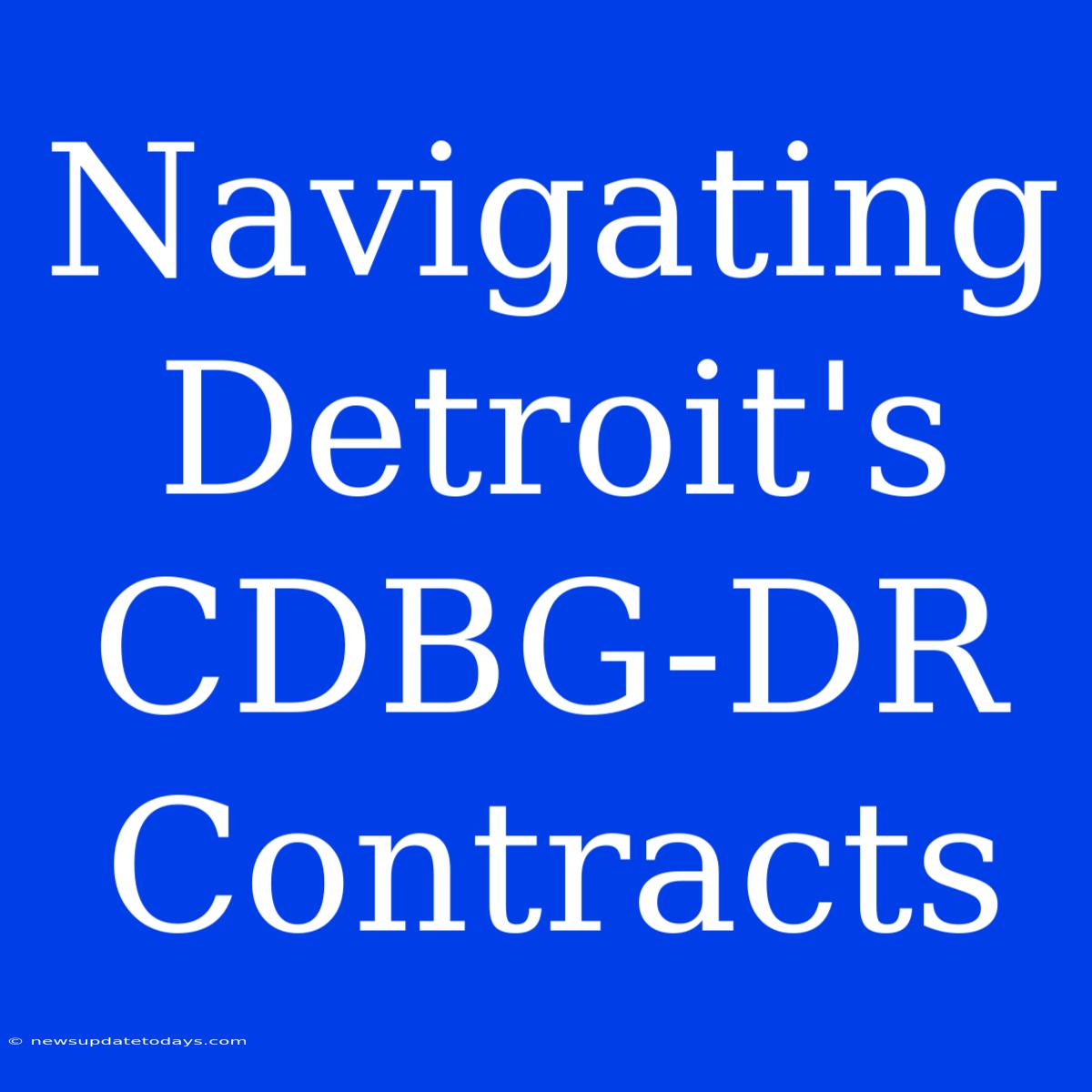Navigating Detroit's CDBG-DR Contracts: A Guide for Contractors and Applicants
Detroit's recovery from various disasters, particularly those impacting infrastructure, relies heavily on Community Development Block Grant-Disaster Recovery (CDBG-DR) funds. Securing and successfully managing these contracts requires a deep understanding of the process. This guide provides insights for both contractors seeking opportunities and applicants navigating the application process.
Understanding the CDBG-DR Program in Detroit
The CDBG-DR program, administered by the U.S. Department of Housing and Urban Development (HUD), provides vital funding for communities recovering from declared disasters. In Detroit, these funds are used for a wide range of projects, including:
- Housing rehabilitation: Repairing and upgrading existing housing stock to improve living conditions.
- Infrastructure improvements: Fixing roads, bridges, and other vital infrastructure damaged by disasters.
- Economic development initiatives: Creating jobs and stimulating economic growth in affected areas.
- Mitigation projects: Implementing measures to prevent future damage from disasters.
For Contractors Seeking Opportunities:
<h3>Finding CDBG-DR Contracts in Detroit</h3>
The City of Detroit and its partner agencies regularly release solicitations for CDBG-DR funded projects. Key resources for finding these opportunities include:
- The City of Detroit's website: Regularly check the official website for announcements of Requests for Proposals (RFPs) and other contracting opportunities.
- Government contracting websites: Explore platforms like SAM.gov (System for Award Management) to find federal and state contracting opportunities.
- Networking: Attend industry events and connect with individuals involved in Detroit's recovery efforts.
<h3>Key Considerations for CDBG-DR Contracts</h3>
- Compliance: CDBG-DR funds are subject to strict federal regulations. Contractors must demonstrate a thorough understanding of these regulations and maintain meticulous records. Failure to comply can lead to penalties or contract termination.
- Subcontracting: Many CDBG-DR projects involve subcontracting. Ensure your subcontractors also understand and adhere to all relevant regulations.
- Reporting requirements: Regular reporting to the City of Detroit and HUD is crucial. Be prepared to provide detailed progress reports and financial documentation.
- DBE Participation: The City of Detroit has Disadvantaged Business Enterprise (DBE) goals. Contractors should actively seek opportunities to include DBEs in their projects.
For Applicants Seeking CDBG-DR Funding:
<h3>Applying for CDBG-DR Funds</h3>
The application process for CDBG-DR funding can be complex. Successful applicants demonstrate:
- A clear need: Articulate the problem your project addresses and its impact on the community.
- Feasibility: Demonstrate the project's practicality and your ability to successfully implement it.
- Sustainability: Explain how the project will continue to benefit the community long after the completion of the CDBG-DR funding.
- Community engagement: Show that you've involved the community in the planning and development of your project.
<h3>Understanding the Application Process</h3>
- Eligibility: Ensure your project and organization meet all eligibility requirements.
- Documentation: Prepare thorough and well-organized documentation supporting your application.
- Deadlines: Adhere strictly to all deadlines. Late applications are typically not considered.
Navigating the complexities of Detroit's CDBG-DR contracts requires diligence, preparation, and a strong understanding of the program's regulations. By leveraging the resources outlined above and focusing on compliance and community engagement, both contractors and applicants can successfully participate in Detroit's ongoing recovery. Remember to always consult the official documentation and seek clarification when needed.

